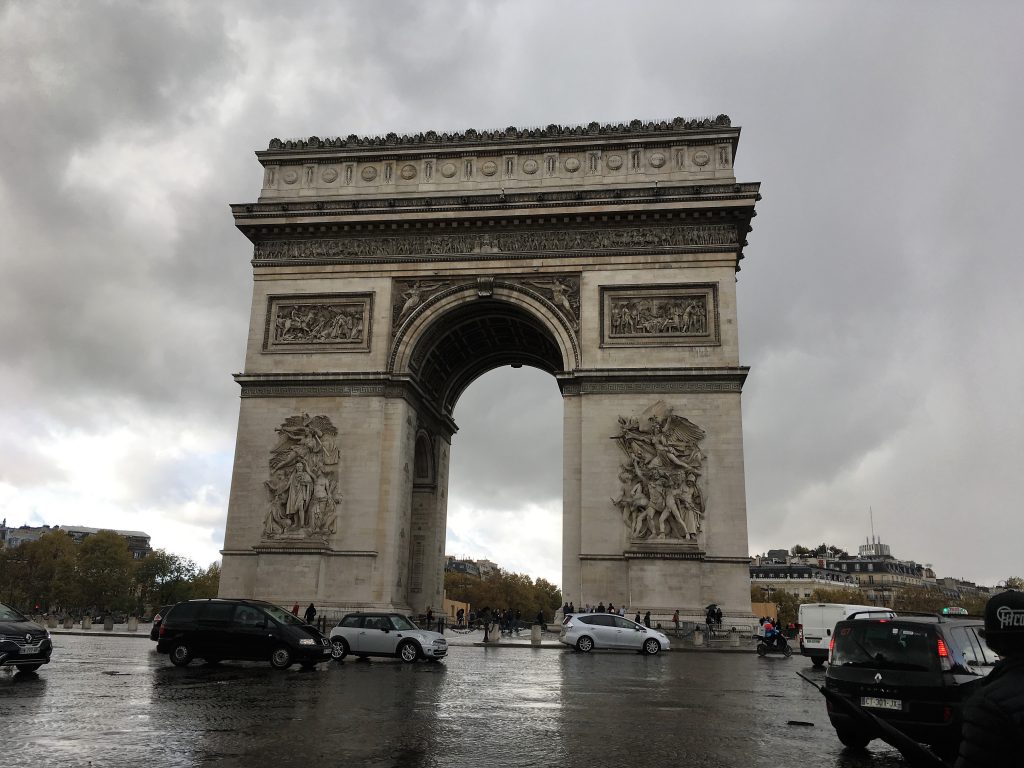
It’s been a strange ride through life to get here. To be back in France for a while and let the dust settle has been cathartic and interesting at the same time. It is the same as I expected it to be on the surface: Paris is busy, the wail of sirens is always somewhere in the background, and the tourists are plentiful (even in November).
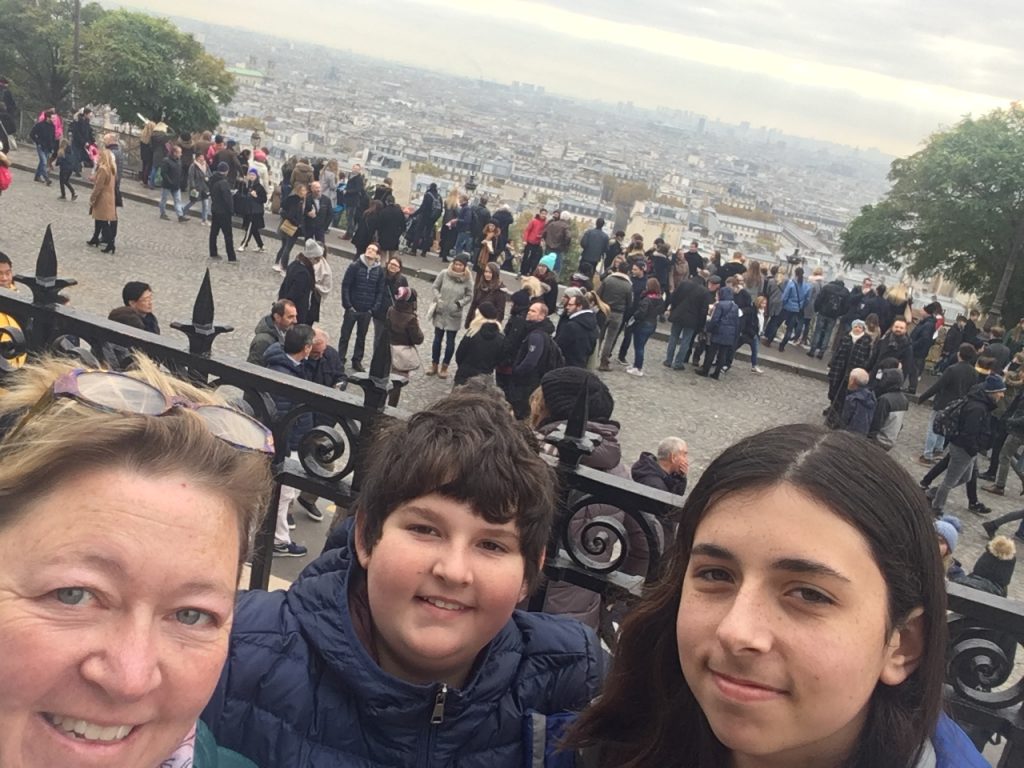
Lots of tourists at Sacre Coeur on a Saturday.
What’s been surprising to me is the dichotomy between how the people appear to act and how they actually behave. Paris has always had the reputation of being snooty, not very friendly, and certainly not somewhere a foreigner would be helped. However, as much as I see this behavior on the outside, I have been pleasantly surprised every day by the actual people who live here and who do not behave this way when it really matters.
Yes, there is the bus and metro where you will not have people meet your gaze, and you do not want to engage in conversation unless you absolutely have to. But it’s at that point – when you absolutely must – that shows the real heart of the French.
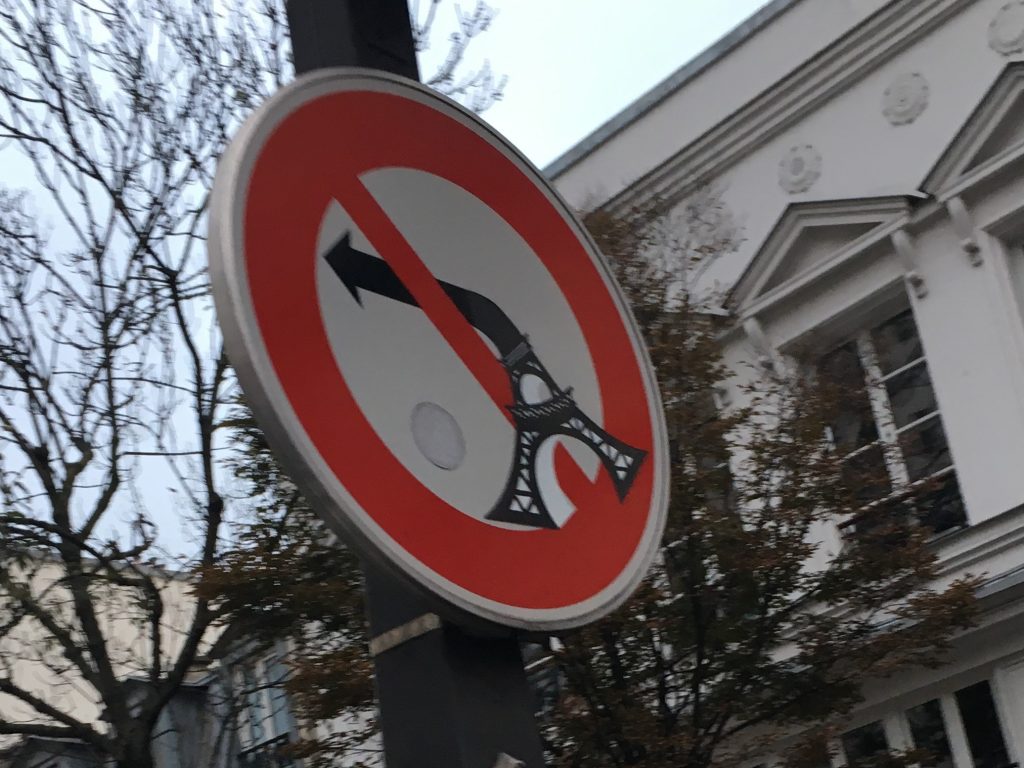
The French also have a drôle sense of humor.
A staple of the French has always been the greeting you receive when you enter a store. A local boulangerie (bakery) or patisserie (pastry shop) worker will *always* tell you good morning or good evening. Upon leaving with your purchase of a tasty chaussette de pomme (apple sock – literally – but really an amazing little apple pie) you will always hear a chirpy “Bonne Journee” (good day). Every. Single. Time.
You might think this example is flawed because the business proprietor wants to always treat his customers right, which is basically true. However, I have seen instances where no interaction or greeting was needed, but was given anyway. For example, I went to the laundromat down the street to do a quick load of towels last night. No one else was in the place except the cleaner who was busy vacuuming the dryer vents. As soon as he saw me, he wished me a good evening. He was not the owner, and I’m sure doesn’t get paid very much, but I saw him wish every customer who walked in a good evening and do his work diligently and conscientiously.
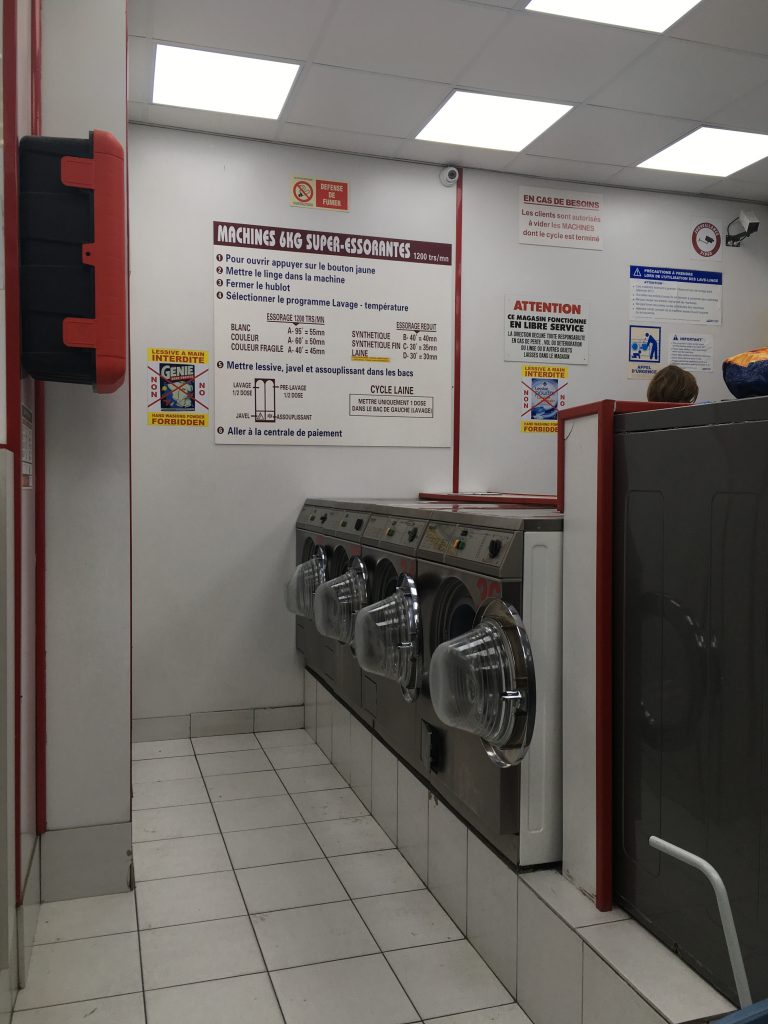
The laundromat. Another staple of being on the road.
I have also seen a great expression of empathy toward the disabled and elderly here that I did not expect. After riding the metro and buses so much, I have decided that the disabled are at a distinct disadvantage. There are escalators in and out of the metro tunnels only about 30% of the time. The rest have staircase after staircase after staircase. Forget about elevators. I think I’ve only seen two.
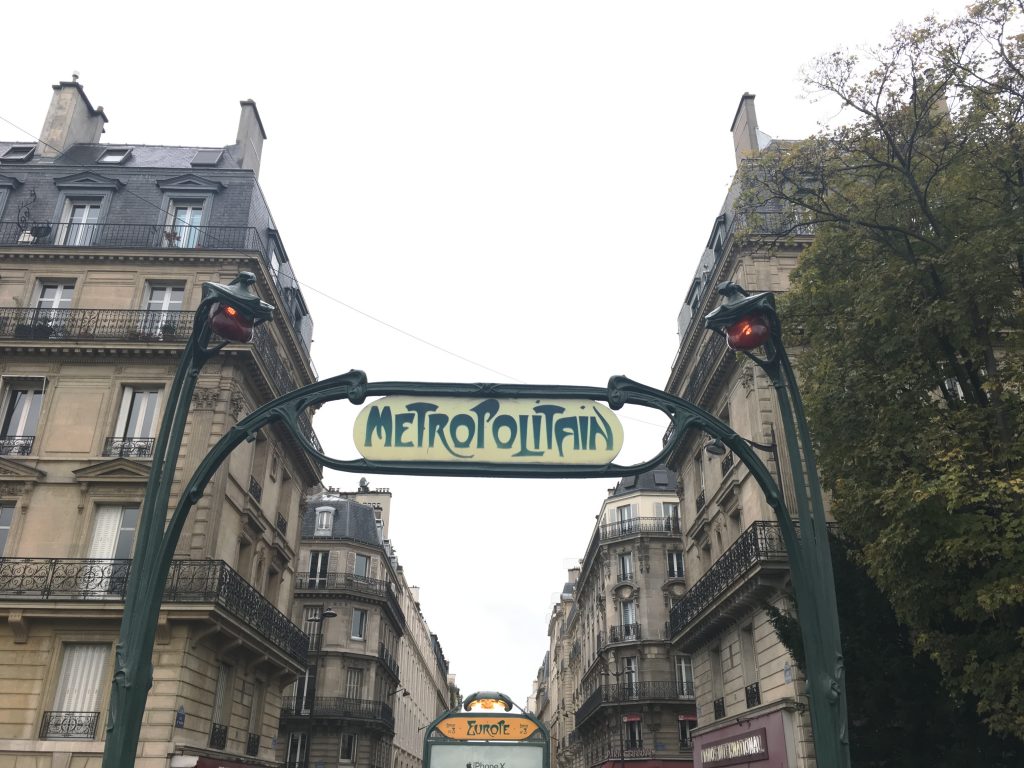
The only way in or out – by stairs.
Going up and down stairs has been a real treat with a sore knee, and I’m technically fully-abled! I’ve seen people with crutches and braces and blind people, but no people with wheelchairs. There is just no accommodation for them on the metro. Some buses do have an elevator lift, but what about when the bus doesn’t go where you want to go? Nevertheless, when someone who is disabled or elderly does ride the public transport, you can be sure that they are treated with respect and dignity.
Case in point: A blind man had just gotten off the metro we were about to board. We were coming down the steps and he was making his way over towards them with his white cane. He seemed a bit confused and turned around and was headed back towards the train. I asked him if he was looking for the train, and he replied no. At this point, since we were near the front of the train, the driver stepped out and had a conversation with the man, trying to help him and make sure that he found the staircase. The driver did not seem in a hurry, and was not perturbed by the interruption that this fellow had caused him. He just wanted to make sure the man stayed safe. I can’t say that many BART drivers would do the same with a confused, disabled person.
I’ve seen several other actions on trains and buses where the passengers have helped elderly either maintain their balance, find a seat, or help them with their bags. Not because they have to, but because it is the right thing to do. People are always thanked, and goodwill reigns on the bus/metro.
The Parisians have a heart after all.
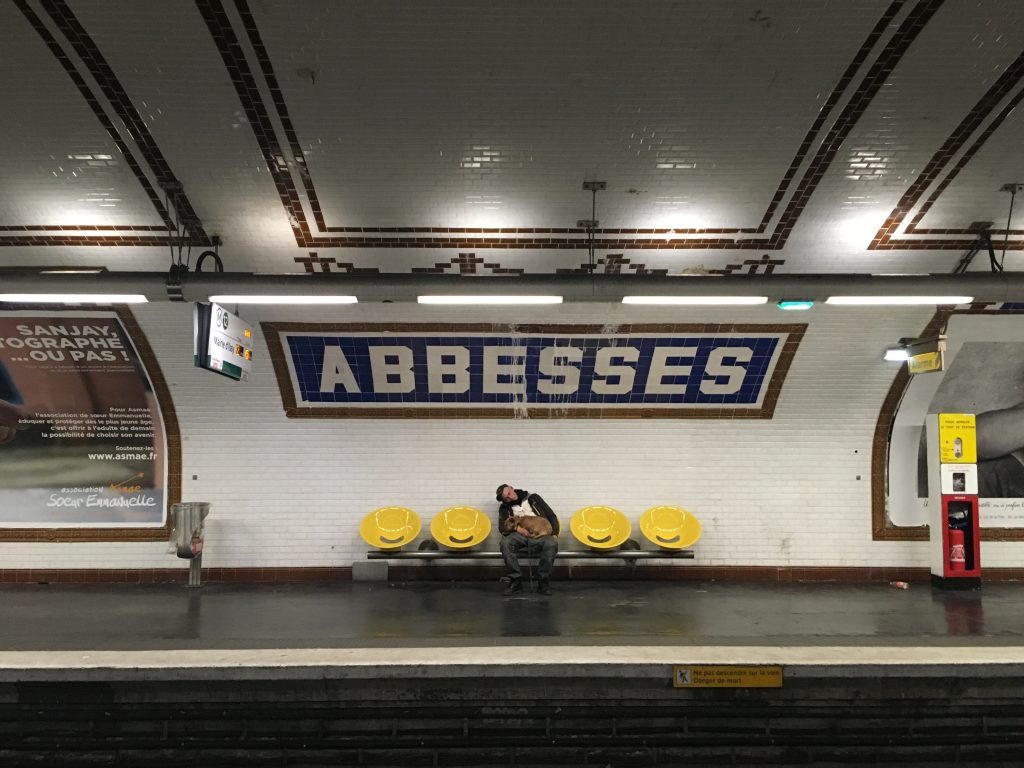
This guy was able to sleep in a busy metro station with his dog. We saw him on another trip the same day in the same seat, still asleep, but more slumped over!
